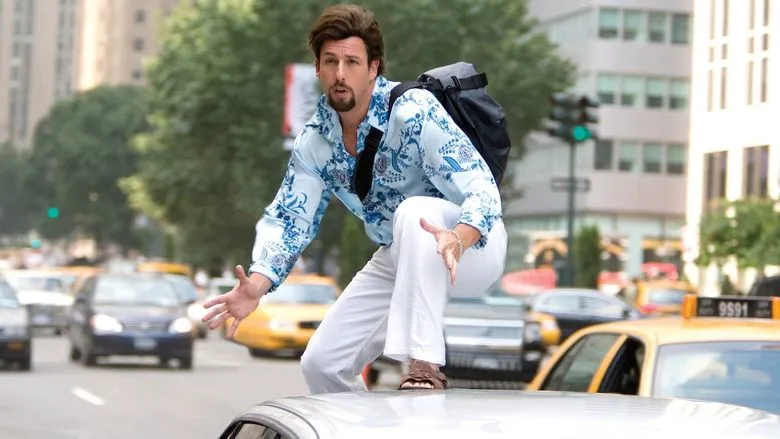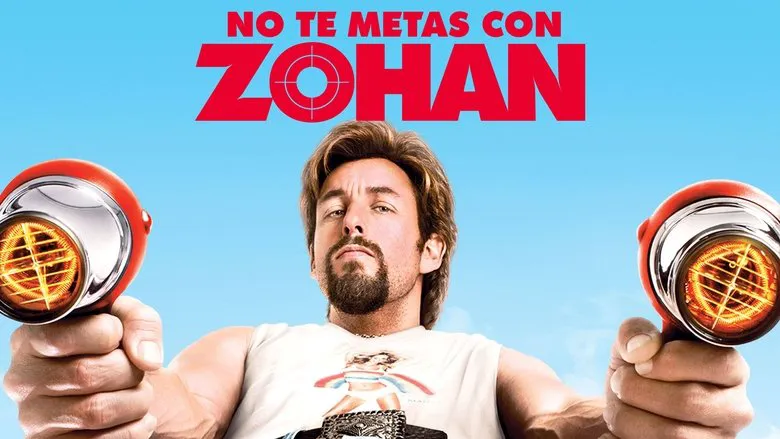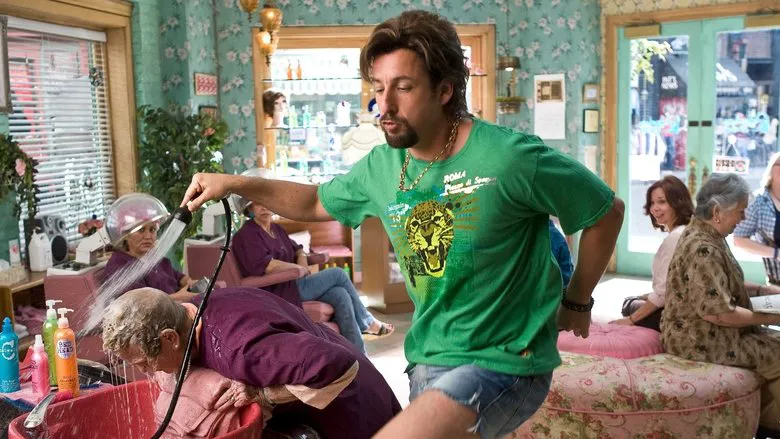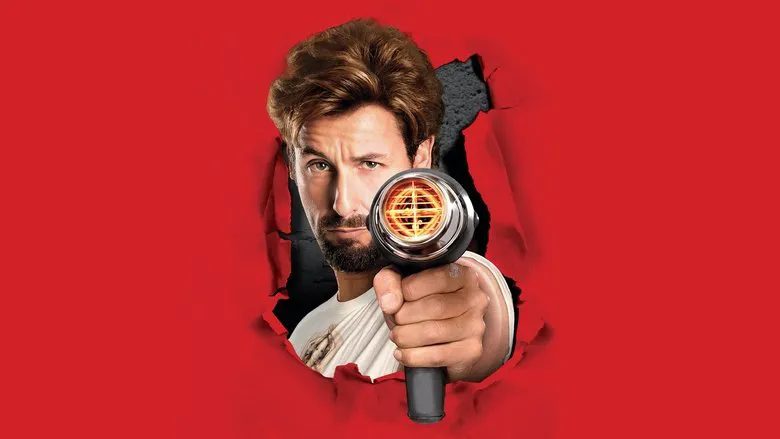You Don’t Mess with the Zohan: A Hilariously Offensive Comedy
Someone clever once said the problem with modern fiction is that “any small-town Jew could write it, but they’re too embarrassed.” You Don’t Mess with the Zohan is a film about a small-town Jew who is absolutely, unapologetically not embarrassed.

Zohan Dvir is an Israeli super-agent capable of disarming an automatic weapon with his bare hands in seconds and shoving a piranha down his pants to prove he feels no pain. He makes love as often and as successfully as he wages war, and he can’t resist a large tuchus. Or a small one, for that matter. He has one dream: to end the senseless anti-terrorist war (every time he captures the dreaded terrorist Phantom (John Turturro), the Phantom is exchanged for a couple of Israeli soldiers), become a hairdresser, and make his clients’ hair “silky smooth.” He spends his nights weeping over Paul Mitchell hairstyle catalogs from the early eighties.
Zohan isn’t just a local Bond or a Borat burdened with Jewish wisdom. He’s an Israeli Austin Powers, not from the sixties, but from the eighties – from the era of disco, shoulder pads, teased hair, and carefree sex, before Hamas existed and a man who dreamed of being a hairdresser was simply a future hairdresser, not necessarily gay.

So, the super-agent decides to fake his own death and stows away in the baggage compartment of a plane to Manhattan, where he tearfully masturbates at the door of a Paul Mitchell salon. But Zohan isn’t hired by Paul Mitchell – he’s too old-fashioned – and he has to look for work wherever he can. Finally, he goes to a Palestinian hair salon, where an endless line of elderly women forms, eager for him not only to cut their hair but also, to everyone’s delight, to “service” them. Then, the dreaded Phantom learns that Zohan is alive and comes to deal with him. Near the end of the film, singer Mariah Carey, a symbol of healthy, touching, and silly America, sings the American anthem, and Palestinians and Israelis unite to fight rednecks and large, predatory corporations. Because, of course, the bad guys are those who hate everyone and take everything from everyone. And the good guys are those who want to do good for people. Even if they are terrorists, taxi drivers, or Mariah Carey.

Crude Humor and Unexpected Laughs
Almost all the jokes in the film are below the belt, tangled in a thicket of pubic hair, but this is no surprise to fans of director Dennis Dugan (of I Now Pronounce You Chuck and Larry), screenwriter Judd Apatow, actor Adam Sandler, or human-anus Rob Schneider. These are exactly the kinds of jokes the audience expects from this company – and in most cases, they’re even much, much funnier. The film alternately offends public morality, good taste, then public morality again, and then screws morality and taste simultaneously – and morality, taste, and the audience seem to enjoy it very much. Perhaps this isn’t the most vulgar movie with Adam Sandler and Rob Schneider (who plays a Palestinian taxi driver here), but it’s certainly one of the most shamefully hilarious. When onlookers see the main villain, they shout, “He has plastic explosives! And puppies!” – and he, with explosives in one hand and a cage of puppies in the other, says, “Yes! I’m going to blow everything up here, including these puppies!” In the list of things that rednecks hate, George Clooney is not the least important, and in the list of things that rednecks like, Mel Gibson is not the least important. When asked what hummus is, one of the Americans replies, “It’s a very tasty, diarrhea-like thing.”

A Diarrhea-Like Delight
You Don’t Mess with the Zohan is a very tasty, diarrhea-like thing. And – a rare case – the more diarrhea-like, the tastier. Perhaps because it’s still about politics – and it’s funny, even when it’s serious. Just as Adam Sandler is wonderful, even when he’s disgusting. And America is like Mariah Carey, even when it doesn’t want to be.
One more thing: the Russian distributors of the film deserve a small monument somewhere in Odessa for their dubbing. Sandler speaks almost like Mashkov in Liquidation, his “ne-ne-ne-ne-ne” and “let’s go?” have entered our everyday speech and don’t want to leave. Mossad? Oh, please.